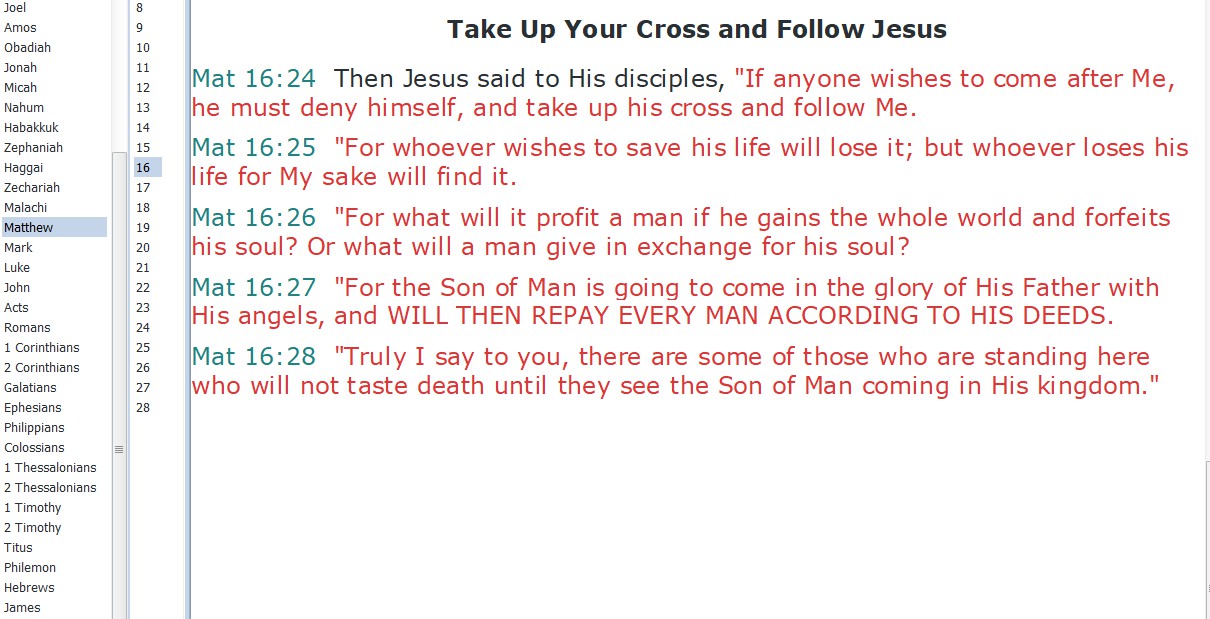Watch
Events
Articles
Market
More
Here is a list of Apostolic passages that I think pair well with parsha #vayechi ("And he lived", Genesis 47:28-50:26), plus links to related videos and commentary:
https://www.americantorah.com/....2021/04/25/parsha-va



Happy first day of the week, everyone! I hope we all have the strength and courage to stand up for YHWH's plan and will for our lives. It may hurt a little to be "left out" of family gatherings, but it would hurt a lot more to be left out of the Kingdom for practicing pagan rituals. Be strong! Shalom.



One of the best pieces of information I received when I started studying, heck, just reading the Bible was that the chapters and verses are not really there. They were added over 1000 years after the close of scripture. These chapters and verses often break up sentences and thoughts.
A case in point:
"Truly I say to you, there are some of those who are standing here who will not taste death until they see the Son of Man coming in His kingdom."
(Mat 16:28)
Sitting in pews long ago, I've heard educated men ponder what that meant. How could any of them see Him in His kingdom? That's not here yet? Well, the problem is the artificial chapter break and the numbering. People think there is supposed to be a pause or a change in thought from Matthew 16: 28 and the 17:1. But there isn't. Even my bible software makes it look like verse 28 is the end of something. Brethren, the bible was not written with chapters and verses. Matthew 17: 1-3 shows the answer. And there would never have been a question what was meant here without the numbering.
Six days later Jesus *took with Him Peter and James and John his brother, and *led them up on a high mountain by themselves. And He was transfigured before them; and His face shone like the sun, and His garments became as white as light. And behold, Moses and Elijah appeared to them, talking with Him.
(Mat 17:1-3)




Lily Portion for Today: Sunday December 24
Your children need to learn that gratefulness is not only the memories of the heart; it is also the sacrifice of the heart. This they need to offer to YHVH for His immeasurable goodness. (Prayer: Adonai Most High YHVH Elohiym, in Yeshua Moshiach You are my family’s Father. Thank You that we can rely on Your promises through the merit of our Saviour and Redeemer, amein)


